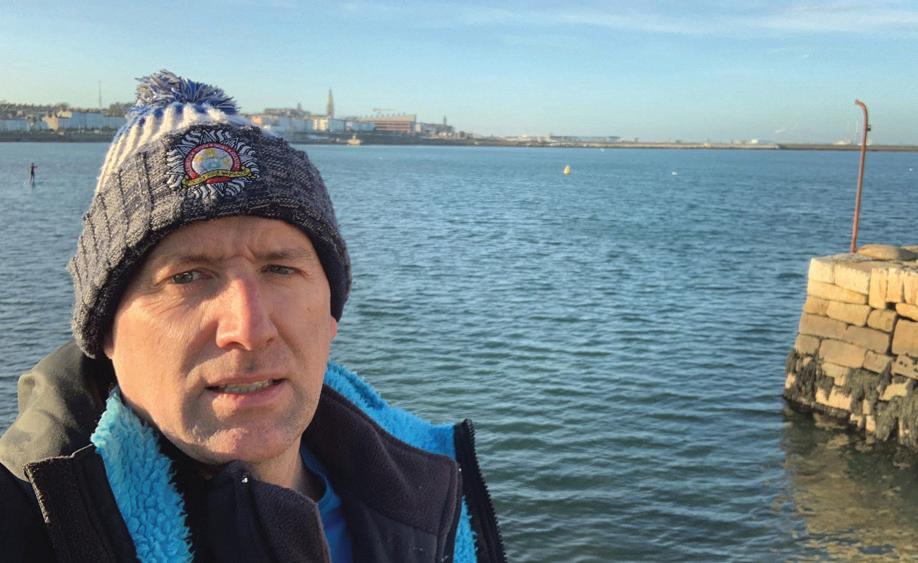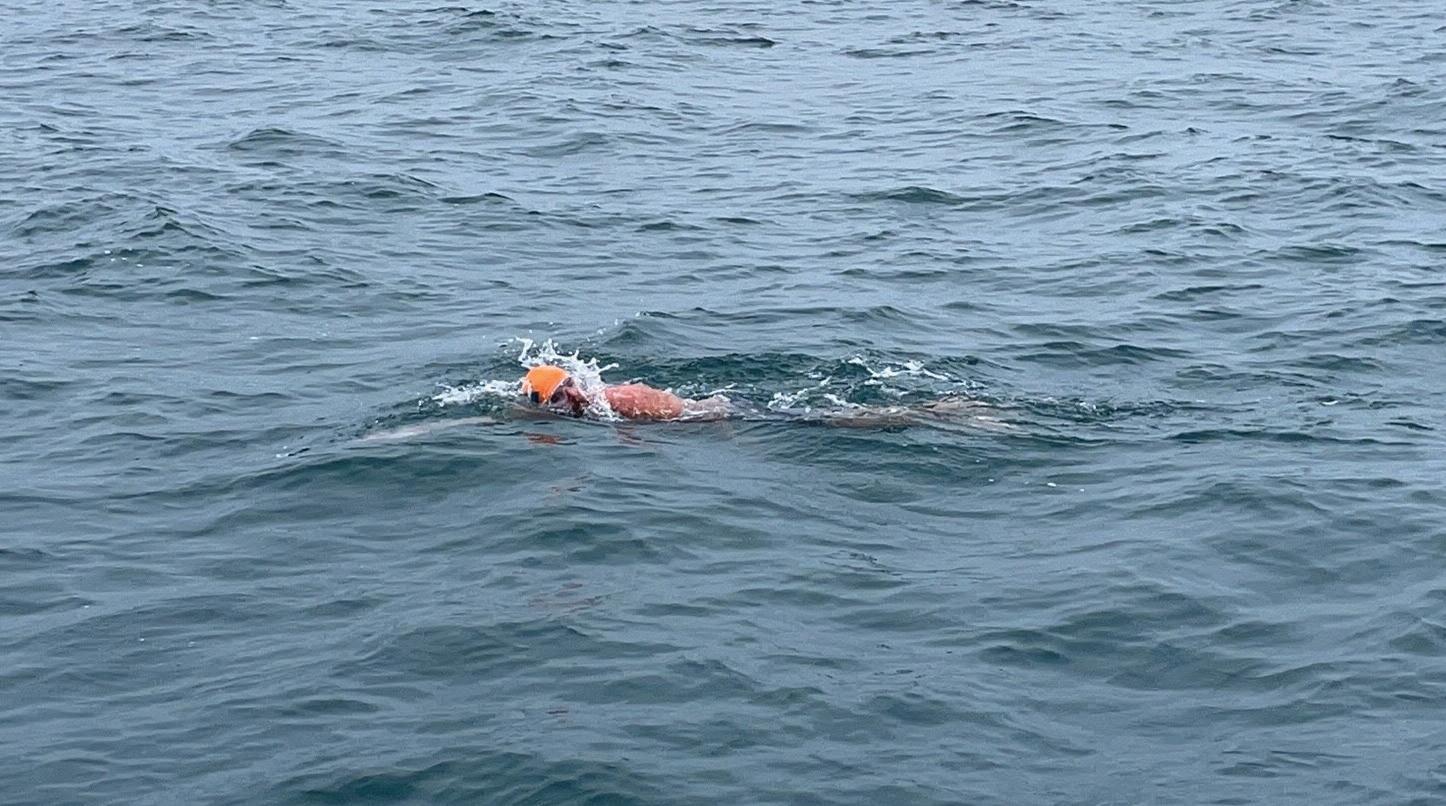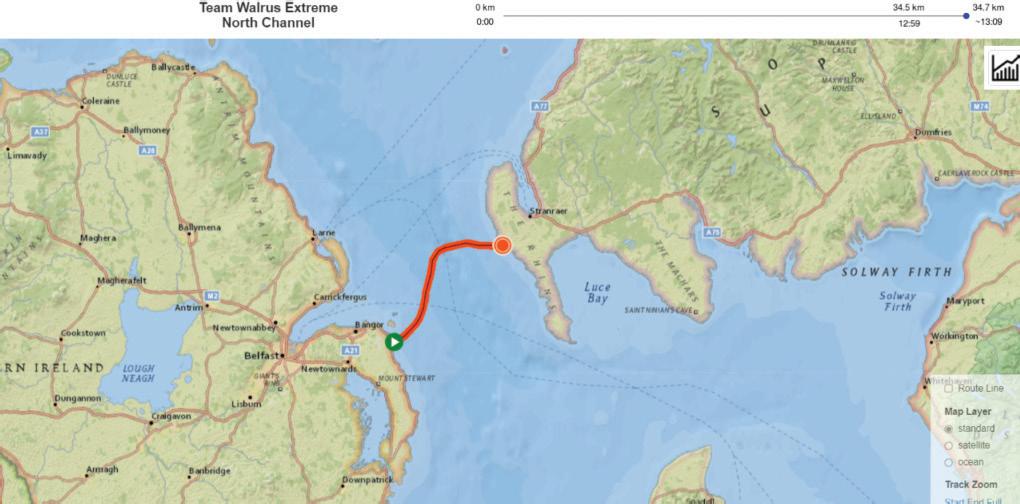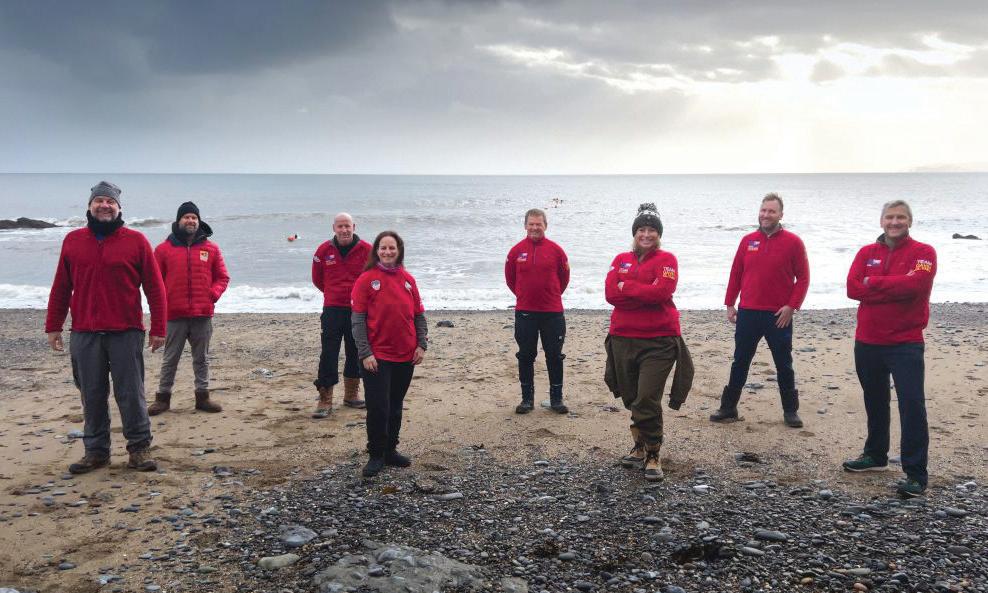
4 minute read
TAKING THE PLUNGE
Sub-Officer Vincent Donegan braved the cold in a relay swim to Scotland to raise money for charity
While most of us try to stay warm during the winter months, Sub-Officer Vincent Donegan of C Watch in Dun Laoghaire instead chose to swim from Northern Ireland to Scotland as part of a record-breaking relay team in January. As one of six members of Team Walrus, he and his sea-swimming friends – Declan Bradshaw, Dave Berry, Colm Morris, Niamh McCarthy and team leader Ger Kennedy – took on the challenge of swimming in water of 8°C without wetsuits to raise money for childhood cancer charity the Gavin Glynn Foundation, and broke the world record for the swim by a six-person in Scotland in just 12 hours and 51 minutes, becoming the first team to achieve the feat in winter.
Sub-Officer Vincent Donegan
team in the process.
The charity is particularly important to FF/P Donegan, as his own son Callan was diagnosed with cancer when he was four. Happily, he has since recovered, but FF/P Donegan continues to donate platelets regularly.
He told a local newspaper that having received so much support from people while his son was ill, he is humbled to be able to help others going through a similar experience.
Starting out from Donaghadee in Co Down, the team took turns to swim for an hour at a time, in between recuperating and trying to re-warm their bodies on the pilot boat, and reached the shores of Portpatrick
IDEA
The idea came about when FF/P Donegan decided to take up sea swimming because the pandemic meant swimming pools were closed. “I went to the 40foot for a swim with a few lads from the fire station and thought it was Baltic,” FF/P Donegan says, “but I got back in and then started to swim small distances, and over time gradually increased the distances as I acclimatised in the water.
“It just spiralled and I kept going to the next level. There’s something about swimming in the sea that puts me in a good headspace. I just get in the zone when I swim and enjoy my surroundings. I enjoy the solitude.” Having formed a friendship with the other members of his team through regular sea swims together, FF/P Donegan started training last summer for what is considered the toughest of the seven ocean swims that also includes the English Channel between England and France and the Cook Strait between the North and South islands of New Zealand.
CHALLENGE
The team was supported by a pilot boat, as well as a doctor to assess their vital signs and a small support team who counted the swimmers’ strokes to make sure they didn’t drop significantly due to illness, and Vincent says the hardest part was not the cold, as the team had trained extensively in even colder water. “The toughest part was actually the time in between the swims, when you get out of the water after an hour and the adrenaline is still pumping, but then you spend a few hours on the boat waiting for your turn to get back into the water again,” he says. “You are trying to warm up and get some food into you, but when we were training for it, we were able to move around a lot more, and for this challenge we were confined to such a small space and were


only able to do a few small exercises to move around and get warm.
“ e body starts to cramp up because it is reacting to what you are doing, and isn’t able to recover, so the second swim for me was de nitely the harder one.”
ACHIEVEMENT
Despite the challenges involved, Team Walrus outdid themselves as they completed the 34.5km swim ahead of their expected 14-hour target, and Vincent says seeing land come into view was hugely rewarding, because the team knew they had completed something very special to them. ey also exceeded their €30,000 fundraising target by raising a phenomenal €49,111.
“A lot of people were saying ‘Why are you doing this?’ or ‘You’re mad’, but we weren’t trying to prove anything to anyone, it was more of a personal challenge for us. I know we set a record but it wasn’t about that, it was more about proving to ourselves what the human body can do, what you can achieve when you train for it, that nothing is impossible.
“Most people would be able to swim for an hour in a swimming pool, but the sea is a di erent matter. e shock of the cold is something that is very di cult to get used to, but we did a lot of training in colder temperatures, even though they were in a more controlled environment. When you are in the North Channel it is completely di erent, and it is very hard to replicate. And then it gets dark!
“You don’t see anything other than the lights of the boat, and from the water you’re not seeing the land, but when I was in the water, I just switched o and enjoyed the swimming, enjoyed the team e ort, and enjoyed the moment.”

One of the team in full flight
The route of the swim
Team Walrus and their support crew


